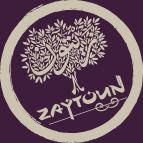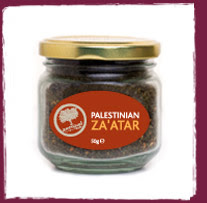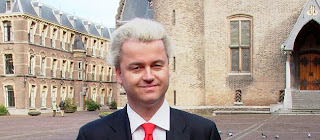 Legendary London theater hosts ‘Two Plays for Gaza’
Legendary London theater hosts ‘Two Plays for Gaza’
by Susannah TarbushSaudi Gazette 25 May 2009The Hackney Empire in East London is one of the British capital’s most famous entertainment and music venues. Built in 1901, it has hosted great entertainers from the past such as Charlie Chaplin and Marie Lloyd, as well as leading figures from the contemporary music and comedy scenes.
Last Thursday evening the theatre’s 1,300 seats were packed full for “Two Plays for Gaza”. The event was a fundraiser for both the Stop the War Campaign and for the Gaza Music School, which was destroyed in the Israeli offensive in Gaza at the turn of the year.
The music school is a project of the A. M. Qattan Foundation, and is co-financed by the Swedish International Development Agency. It was originally launched last July to meet a growing demand for music education from children and parents attending the Qattan Center for the Child in Gaza organization.
The school occupied rented space at the Palestinian Red Crescent Society building in the Tel Al-Hawwa neighborhood of Gaza. Classes began in October, and on Dec. 23 the school held its first public concert. Just four days later it was damaged by Israeli bombardments, and when Israel invaded the area in mid-January, the building took a direct hit and the school was completely destroyed.
Thanks to campaigns of support around the world, the Qattan Foundation was able to report that some $69,000 had flowed in and that the school reopened in new premises in mid-April. However, more funds are required to rehabilitate and develop a facility which is not only a cultural asset, but which also brings the therapeutic benefits of music in helping children express themselves and overcome trauma.
The veteran Labor politician and former cabinet minister Tony Benn
[pictured] introduced the evening. Israel’s supporters often try to dismiss criticism of Israel as anti-Semitism, but Benn received sustained applause when he declared, “This idea - that in taking the stand we do we are actually anti-Semitic - is an absolute lie.”

The evening revealed the high degree of support for the Palestinians among artists in Britain. In addition to the direct participation of actors, writers, directors and others in staging the event, there were numerous messages of support on the printed program from the likes of comedian and author Alexei Sayle, political satirist Mark Thomas, writer and documentary maker John Pilger, actors Timothy West, Prunella Scales, Terry Jones and Janet Suzman, and novelists A.L. Kennedy and Iain Banks.
The first play staged during the evening was Caryl Churchill’s powerful 10-minute drama “Seven Jewish Children”, which the acclaimed playwright wrote in response to Israel’s onslaught on Gaza.
There was an outcry in some quarters when the play was first staged at the Royal Court Theatre in February and the BBC had refused to broadcast it. According to the Guardian newspaper, BBC Radio 4’s drama commissioning editor Jeremy Howe said in an e-mail that he and Radio 4 controller Mark Damazer thought the play was a “brilliant piece” but that they had decided, after debating long and hard, “we cannot run with it on the grounds of impartiality”.
The second play was “The Trainer”, by David Wilson and Anne Aylor. The focus of the play is the disaster that befell the English composer Keith Burstein over his opera on the war on terror, “Manifest Destiny”.
In 2005, a reviewer of the opera wrote in London’s Evening Standard newspaper that “the idea that there is anything heroic about suicide bombers is, frankly, a grievous insult.” Burstein issued a writ for libel against the newspaper’s publisher, Associated Newspapers, on the grounds that the reviewer had portrayed him as glorifying terrorism, thereby laying him open to prosecution under anti-terror legislation.
A High Court judge granted Burstein the opportunity to take the case to trial by jury, but the Court of Appeal overturned this decision, in favor of Associated Newspapers.
The publisher’s costs of around £70,000 were awarded against Burstein, who was declared bankrupt. Burstein was refused leave to appeal to the House of Lords and the case is currently being taken to the European Court of Human Rights.
“The Trainer” is set in an upmarket gym in the basement of a gentlemen’s club where a young Palestinian woman Taghreed (played by Jana Zeineddine) is a fitness trainer. She trains three middle-aged men, played by Corin Redgrave, Paul Herzberg and Roger Lloyd Pack, who turn out to be Appeal Court judges. Taghreed finds a DVD of “Manifest Destiny” in the gym and plays excerpts on a large screen. She is engaged to a British Jew, Josh (David Mildon), who travels to help Palestinians with their olive harvest in the face of attacks from Israeli settlers. “The Trainer” interweaves Taghreed and Josh’s story with the storyline of “Manifest Destiny”.
Musical extravaganza
The evening featured a strong Palestinian musical element in the form of a performance by the renowned singer and musician Reem Kelani
[pictured]. She was accompanied by young violinists Noemi Rubio and Laia Serra whom she described as “my two adopted nieces from Catalonia”.

Kelani delivered her performance with characteristic humor and brio. She began with a lively 19th century Palestinian wedding song, complete with stamping and clapping, which exhibited her impressive vocal range.
Her second number was a meditative, soulful composition for which the keening violins of the Catalan musicians were a perfect accompaniment. The song came from a Palestinian refugee survivor who lives in Syria. “This woman comes from the Khadra family of Safad. There isn’t one Arab left in Safad, but the songs remain. She is a third generation refugee, and in this song she is begging her eyes not to cry,” remarked Kelani.
Her last song was “Zourouni”, by the legendary Egyptian composer Sheikh Sayyid Darwish. She recalled that in one of his most famous songs he had written, “‘Never tell me that you are a Muslim, Christian or Jew: if your homeland unites you, your religion should never ever divide you’. He said this in 1919, and I think we still need to learn it”.
.jpg)
Another vocal performer was the rapper, poet and political activist Lowkey
[pictured], born to an Iraqi mother and English father in 1986. He engaged the audience with his rapid-fire rap numbers such as “Long Live Gaza”. “I came back from the West Bank in February and the people there are aware of all the things that the Stop the War Coalition does in this country,” said Lowkey.
“Please continue your support for Stop the War because it is important to let people in Palestine know that we - the British people - have not forgotten them.”




.jpg)























 The Home Office said yesterday he had not been included on the list because " he is a European national and was excluded under different grounds. Geert Wilders was refused admission to the UK on 12th February 2009 on public policy and public security grounds. The decision to refuse admission was taken under the Immigration (European Economic Area) Regulations 2006 as Mr Wilders is an EEA national. He has not been excluded from the UK. Any future proposal by Mr Wilders to visit the UK would be considered on its merits, taking all relevant factors into account. However ... from today we are now able to ban European nationals and their family members if they constitute a threat to public policy or public security."
The Home Office said yesterday he had not been included on the list because " he is a European national and was excluded under different grounds. Geert Wilders was refused admission to the UK on 12th February 2009 on public policy and public security grounds. The decision to refuse admission was taken under the Immigration (European Economic Area) Regulations 2006 as Mr Wilders is an EEA national. He has not been excluded from the UK. Any future proposal by Mr Wilders to visit the UK would be considered on its merits, taking all relevant factors into account. However ... from today we are now able to ban European nationals and their family members if they constitute a threat to public policy or public security."







